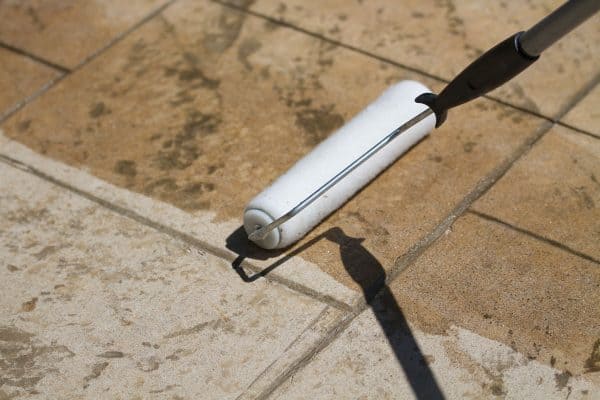Disclosure: We may get commissions for purchases made through links in this post.
As a homeowner, keeping your pavers in good condition and making them attractive could be your primary goal. But achieving this may seem difficult for some. You may want to harden your sand with a paver sealer to get a better look but are still unsure if this will work. Worry no more! We have consulted some experts in this field to give you insightful information.
Paver sealer hardens sand, keeping your pavers in place. The sand serves its purpose but is not hard enough to keep your pavers in place for a long time. They may soften when wet. Paver sealers also fill gaps between pavers, ensuring stability and a better result. Additionally, hardening the sand between your paver keeps insects away.
When polymeric sand is hardened, aesthetic flooring is guaranteed. Read further to discover how paver sealer hardens sand, aiding its stability and preventing erosion.
![Garden Patio in Backyard Stone Brick Pavers Hardscape Layout Design Top View, Does Paver Sealer Harden Sand? [How to Stabilize Sand & Prevent Erosion]](https://pavingplatform.com/wp-content/uploads/2022/04/Does-Paver-Sealer-Harden-Sand-How-to-Stabilize-Sand-Prevent-Erosion.png)
How To Stabilize Sand Using Paver Sealer
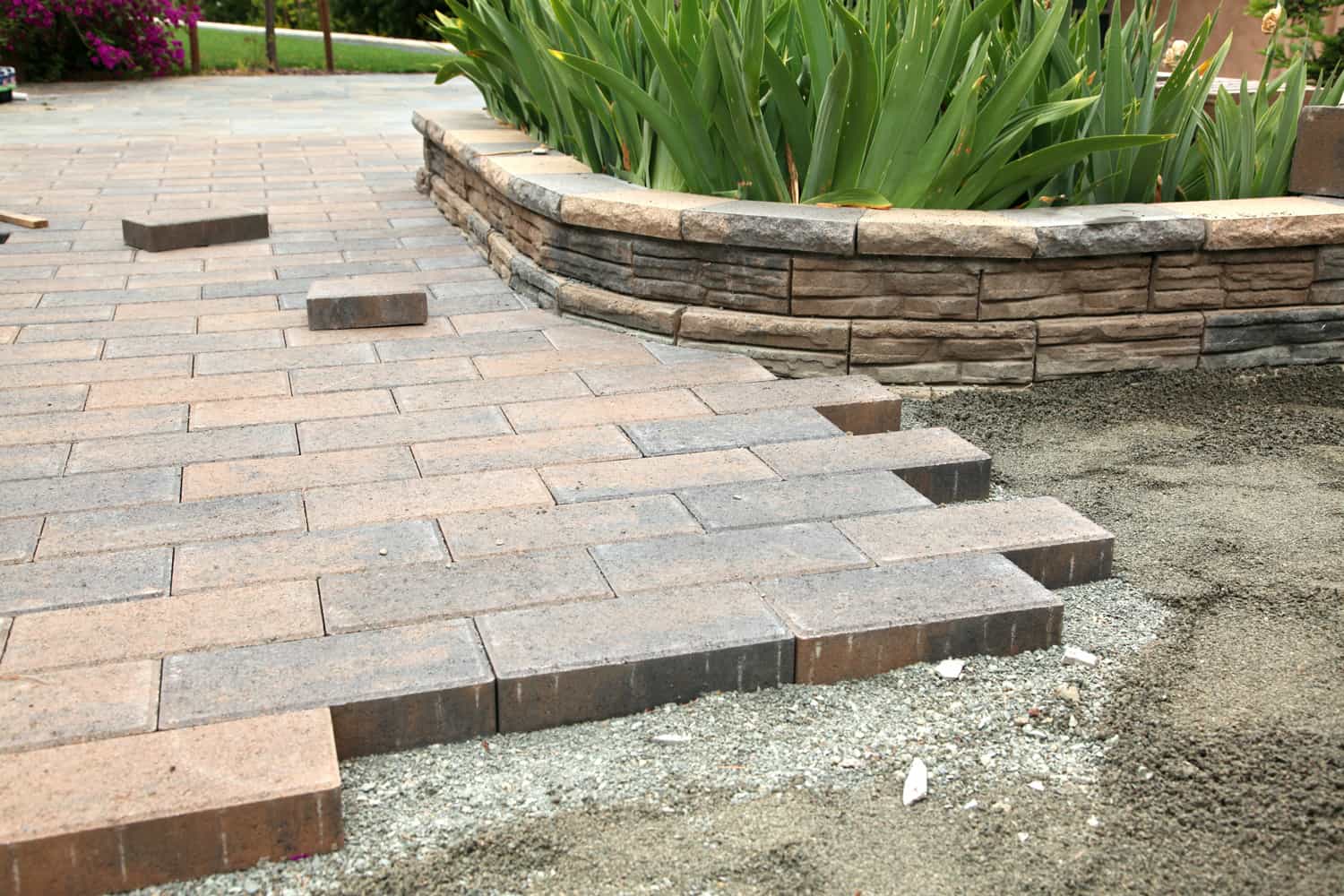
Paver sealer can be used to coat the surface of pavers, preventing them from being damaged by water and other elements. Furthermore, there is a high possibility that the sand will leave the gap between each paver if left without a seal, littering the environment. But paver sealer keeps them fixed in between pavers.
When paver sealer is applied on pavers, it hardens and stabilizes the sand, making your pavers last longer. Erosion can also be prevented if the sand is stabilized. One might think a paver sealer doesn't do much, but they determine how long your pavers last.
Polymeric Sand For Pavers
One major factor to consider before choosing the sand for your paver is its binding power. Polymeric sand is known to have good binding power and can make your pavers last long. It contains 85 to 90% quartz and crystalline silica.
When you wet polymeric sand, polymers are activated. These polymers harden different components that keep the pavers in place. Additionally, they prevent the growth of weed and insect infestation. If paver sealers are used on polymeric sand, you will have a durable paver.
Polymetric sand does not allow much water to move through, so the material beneath should be free draining. The first layer that plays the role of a leveler should be capable of draining water. If not, you can install your pavers on sloppy areas so water will be drained from the foundation.
Polymeric sand can be used in landscaping to substitute for gravel or pebbles. They can also be used as a concrete additive in construction and an alternative to traditional clay pipes.
Can Regular Sand Be Used Between Pavers?
All-purpose/leveling/paver sand can be used instead of polymetric sand. It is less expensive and can be easily worked on if there is a need for adjustment or replacements of each paver. The processes involved in sealing your pavers with all-purpose/leveling/paver sand and polymeric sand are similar.
Sealer To Use For Your Pavers
- Penetrating paver sealers: This type of sealer is water-based and can penetrate the pores of the concrete, where it forms a protective film. Penetrating paver sealer is easy to apply and offers a natural look. Penetrating paver sealer can be used on concrete surfaces like driveways, sidewalks, patios, and garage floors.
Click here to see this penetrating sealer on Amazon
- Natural paver sealers: If you are looking for a paver sealer that will maintain the natural aesthetic of your pavers, you should go with a natural paver sealer. This sealer is preferred because it is easy to use and can kill fungi and mold.
Check out this natural sealer on Amazon
- Acrylic paver sealers: They are used to protect the surface from damage and maintain the color. An ideal acrylic paver sealer should be durable and resistant to water, oil, and gas. It should also be able to withstand extreme weather conditions.
Check out this acrylic sealer on Amazon
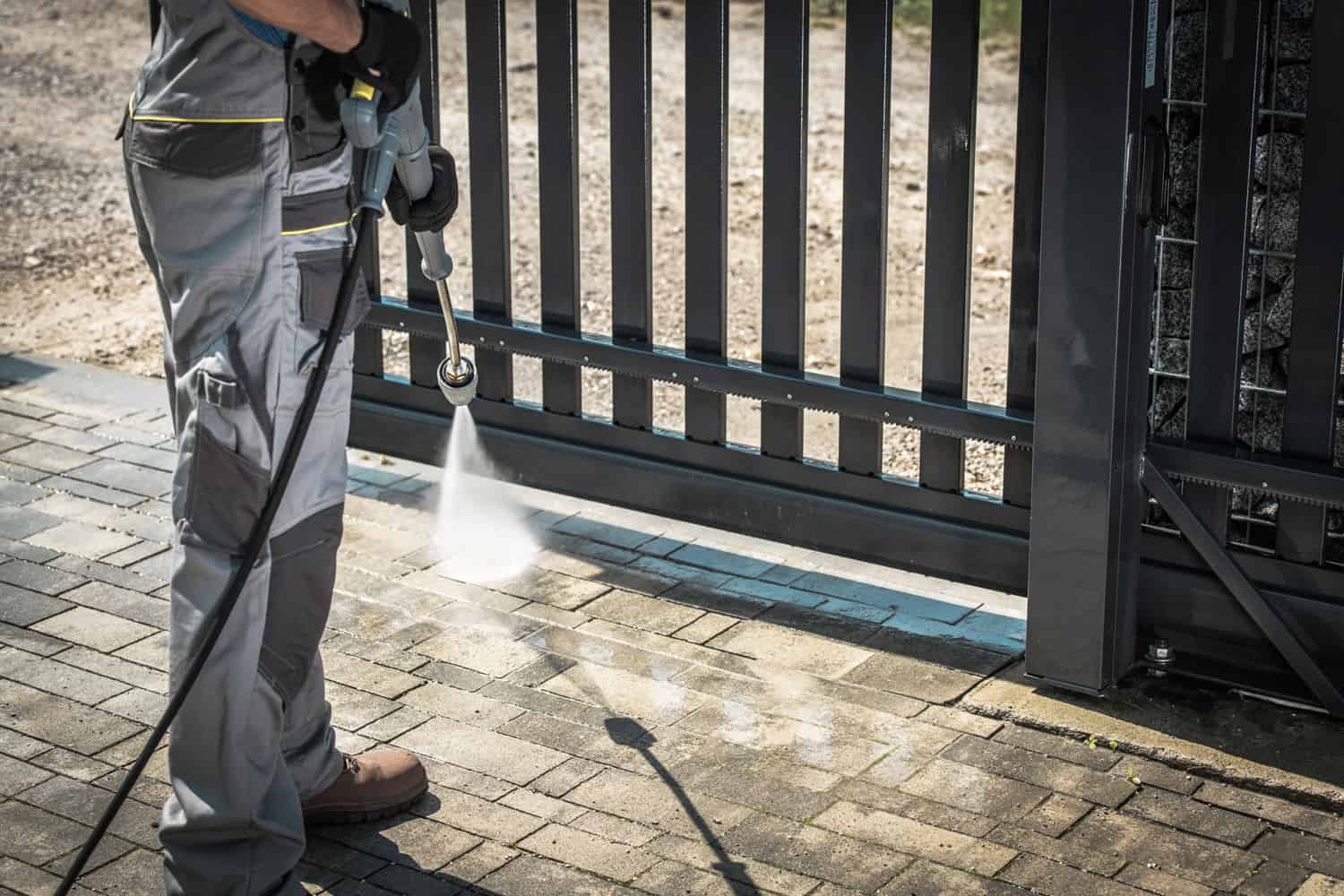
Does Polymeric Sand Need To Be Sealed?
Polymeric sand needs to be sealed to make your pavers durable. This can be done by using a sealant which will help prevent moisture from entering the sand.
How Long Does It Take Paver Sealer To Dry?
It is best to allow your seal to dry after application. It takes about 4-12 hours for the sealer to dry and shouldn't be walked on immediately after application. Vehicles should only be allowed to move on the sealed surface after at least 48 hours. If sealed with an acrylic sealer, the surface shouldn't be used for at least 36-48 hours.
What To Do Before Sealing Your Pavers
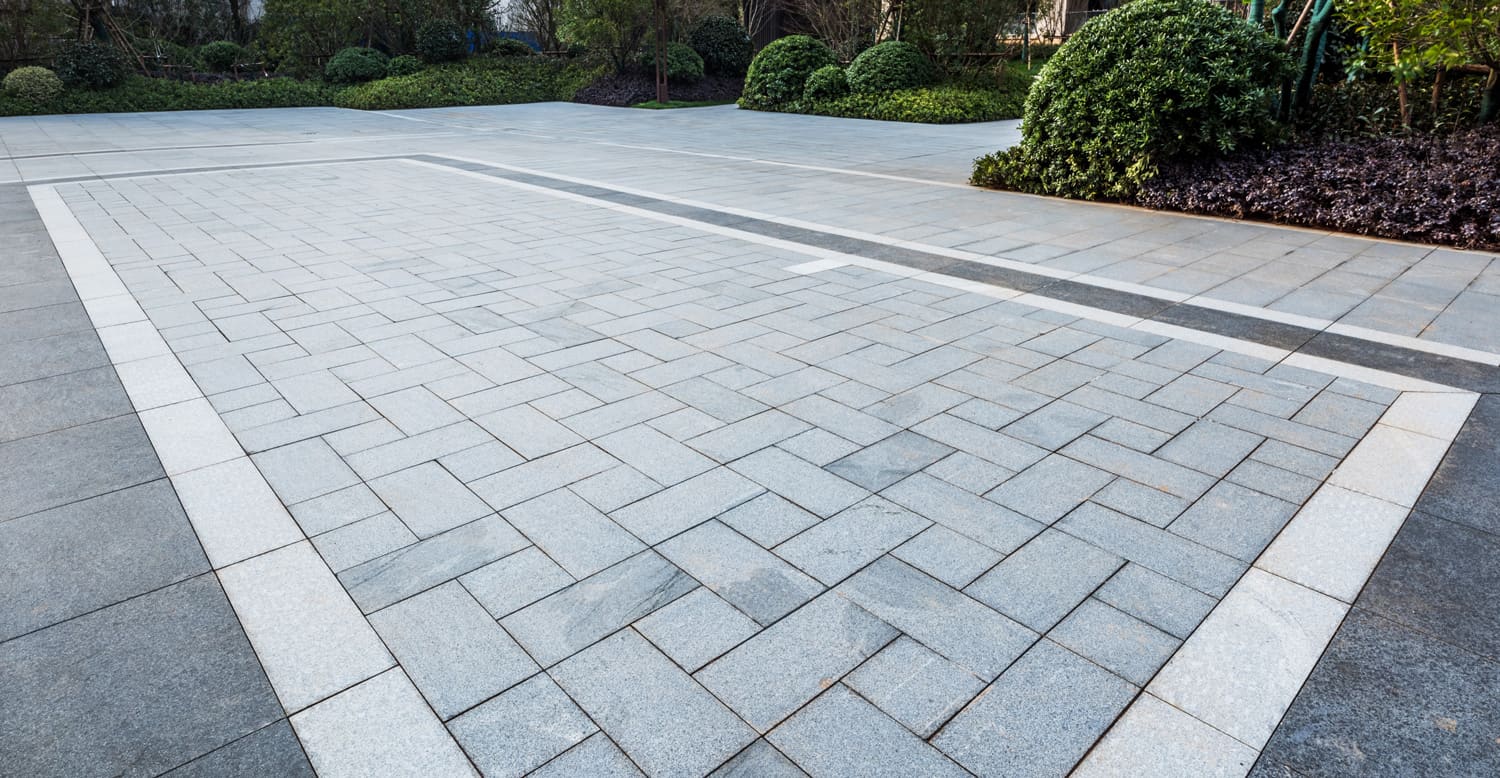
Here are some things you need to do before sealing your pavers:
1. Clean Your Pavers
Cleaning your pavers prepares them for sealing. It helps to achieve a long last outcome. If your pavers are dirty, bonding may be difficult.
2. Check The Weather
Before sealing your pavers, make sure there won't be rainfall for 24 hours before and after your sealing job. Sealing a wet paver is not advisable, your pavers should be extremely dry before sealing.
3. Remove Contaminated Sand In Between Your Pavers
Contaminated sands in between your pavers should be removed and replaced with polymeric sand before sealing.
How Often Should Pavers Be Sealed?
As a homeowner, you need to be observant to know when your pavers start fading so that you can reseal them. To maintain the quality of your pavers, you should reseal them periodically. It is better to reapply the paver sealer every 3-5 years.
Do You Seal Pavers Before Or After Sand?
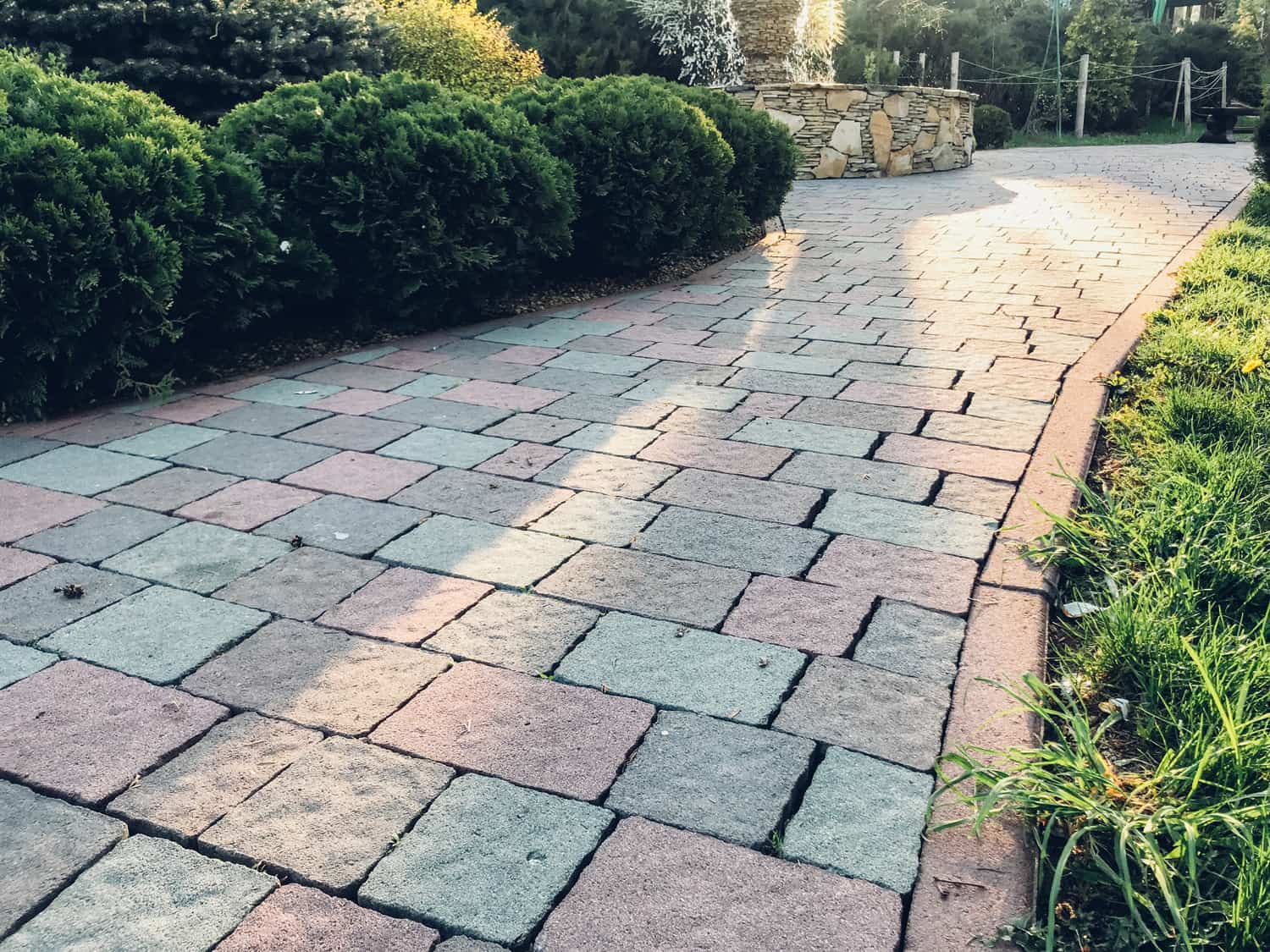
It is better to seal the joints of the pavers with polymeric sand before sealing the surface. You are advised to leave the joints to dry for no less than 24 hours before sealing the surface of the pavers.
Reasons for Sealing Pavers
Homeowners seal their pavers for the following reasons:
1. Pavers Are Sealed To Get A Beautiful Surface
The ideal way to keep your pavers looking good is by sealing them. Looks are usually a priority for most homeowners and this can be achieved by sealing your pavers. The sealant provides an aesthetic and polished look to the pavers.
2. Sealing Pavers Helps To Prevent Stains
The most common reason for sealing pavers is to protect the surface from dirt, stains, oils, and other contaminants. Sealing your pavers makes them stain-resistant and easier to clean. It also helps to keep them free of debris.
3. Pavers Are Sealed For Longevity
Sealing your pavers makes them last longer so you don't have to worry about replacing them for years. The sealant protects against water and other substances that may cause damage to the pavers.
4. Sealing Pavers Reduce Noise On Exterior Surfaces
When you seal your pavers, the noise on your driveways and parking lots reduces. This happens because there is an extra layer of insulation between the ground and foot traffic.
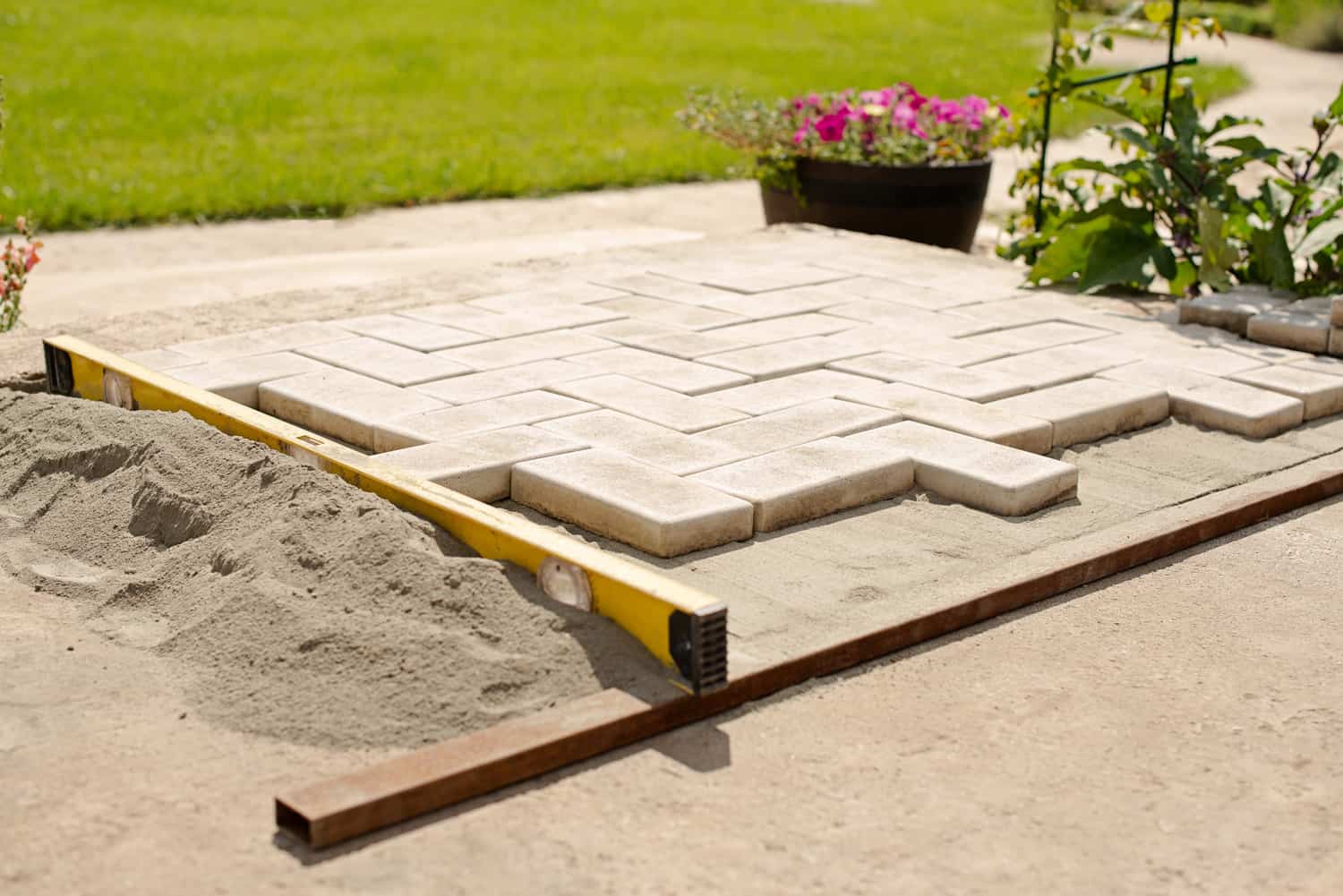
Can I Reapply Polymeric Sand?
It is advisable to reapply polymeric sand when you notice any chipping or damage between your pavers as a homeowner. Reapplying polymeric sand to damaged areas can be easily done.
What Is Efflorescence?
White haze that appears on the surface of concrete pavers within a few weeks to a few months after installing your pavers is called efflorescence. This is a natural phenomenon and the pavers are not affected when this happens, so you don't have to worry. Some commercial agents can reduce its appearance. Efflorescence vanishes within the first year after installing your pavers.
To Sum It Up
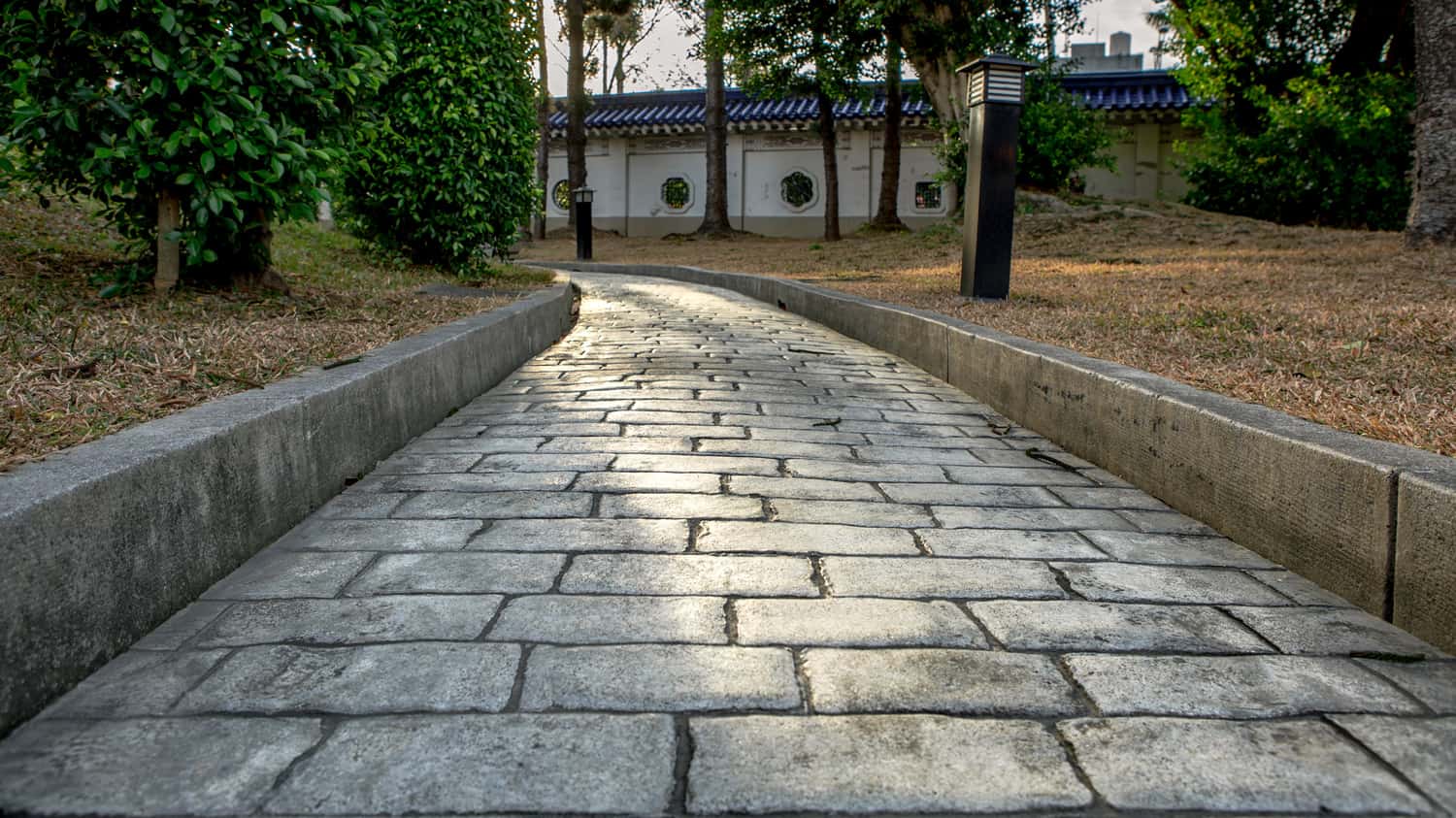
Paver sealer hardens sand, making your pavers last longer. Pavers sealers have been found to protect the paver surface from the damaging effects of weather and traffic. It also protects your investment by protecting the color and texture of your pavers. If you enjoyed reading this post, you might want to check out these related articles:




![Vibrant Red Paver Stone Path, Can You Spray Paver Sealer? [How To Apply It]](https://pavingplatform.com/wp-content/uploads/2022/04/Vibrant-Red-Paver-Stone-Path-600x400.jpg)
![Properly laid out red pavers for a garden, Can You Tint Paver Sealer? [And How To]](https://pavingplatform.com/wp-content/uploads/2022/04/Properly-laid-out-red-pavers-for-a-garden-600x400.jpg)
